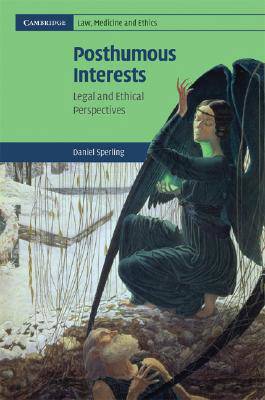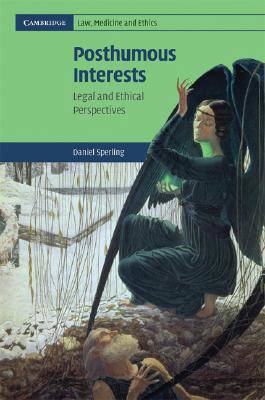
- Afhalen na 1 uur in een winkel met voorraad
- Gratis thuislevering in België vanaf € 30
- Ruim aanbod met 7 miljoen producten
- Afhalen na 1 uur in een winkel met voorraad
- Gratis thuislevering in België vanaf € 30
- Ruim aanbod met 7 miljoen producten
Zoeken
€ 187,45
+ 374 punten
Uitvoering
Omschrijving
Daniel Sperling discusses the legal status of posthumous interests and their possible defeat by actions performed following the death of a person. The author first explores the following questions: Do the dead have interests and/or rights, the defeat of which may constitute harm? What does posthumous harm consist of and when does it occur, if at all? This is followed by a more detailed analysis of three categories of posthumous interests arising in the medico-legal context: the proprietary interest in the body of the deceased, the testamentary interest in determining the disposal of one's body after death and the interest in post-mortem medical confidentiality. Sperling concludes that if we acknowledge the interest in one's symbolic existence and legally protect it, not only do some interests survive a person's death but we should also enjoy a peremptory legal power to shape in advance our symbolic existence after death.
Specificaties
Betrokkenen
- Auteur(s):
- Uitgeverij:
Inhoud
- Aantal bladzijden:
- 304
- Taal:
- Engels
- Reeks:
- Reeksnummer:
- nr. 7
Eigenschappen
- Productcode (EAN):
- 9780521877848
- Verschijningsdatum:
- 8/05/2008
- Uitvoering:
- Hardcover
- Formaat:
- Genaaid
- Afmetingen:
- 152 mm x 229 mm
- Gewicht:
- 589 g

Alleen bij Standaard Boekhandel
+ 374 punten op je klantenkaart van Standaard Boekhandel
Beoordelingen
We publiceren alleen reviews die voldoen aan de voorwaarden voor reviews. Bekijk onze voorwaarden voor reviews.







